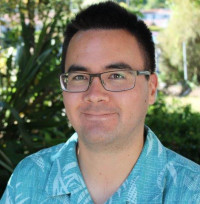Whose science is privileged in the protection of our rivers?
Dr Marc Tadaki from the Coastal and Freshwater Group at the Cawthron Institute will investigate what kind of river science is privileged by environmental decision makers. The inclusion of Māori perspectives in this research is critical to understanding how decision making about fresh water might be improved.
Published on 5 November 2019
Over the past decade, agricultural intensification and urbanisation have taken their toll on the water quality of many rivers in Aotearoa. We know that human activities are pushing ecosystems, including rivers, to the brink of collapse and scientists have conducted a lot of research to help us understand the degradation of rivers. However, not all scientific knowledge is considered, valued, and used equally.

Dr Marc Tadaki. Photo: supplied
This Te Pūtea Rangahau a Marsden Fast-Start project will investigate how different types of environmental knowledges, specifically mātauranga Māori and western scientific knowledges, are valued in decision making. Dr Tadaki will examine how river science is valued in the courts, in regional planning, and in freshwater monitoring. By identifying which knowledges are dominant and which are marginal, Dr Tadaki will consider the consequences of these arrangements for ecosystems and communities. Drawing on documentary materials, interviews, and observations of scientists and policy makers, he will investigate how river science is formatted to serve organisational agendas, how institutional drivers constrain what is known about rivers, and how competing river knowledges are adjudicated in court.
By exposing the often invisible practices that favour certain sciences and biophysical aspects of rivers, this project will inform public debate about which knowledges should be used to govern rivers. The research will make an important contribution to determining what type of science-policy arrangements can help society incorporate the value of diverse sciences and knowledge systems to ensure better outcomes for rivers.
